Blog
Wells and Jerrycans On The Tour d’Afrique
In our continuing series TDA Community News we are sharing stories from our community – both past participants and staff and aspiring riders. In this piece Ryan Matthews shares some behind the scenes insight into what it takes to make sure riders have enough water to drink each day at lunch on the roadside.
“Lunch Truck Driver” sounds straightforward enough. Little did I know just how diverse the logistical challenges would be! I joined the 2018 Tour d’Afrique, where my most visible role was to serve lunch to riders around the halfway point on each of the 89 stages from Cairo to Cape Town. On every riding day I created a comfortable little oasis for the cyclists, where they got to take a break, socialize a bit, have some food, and rehydrate.
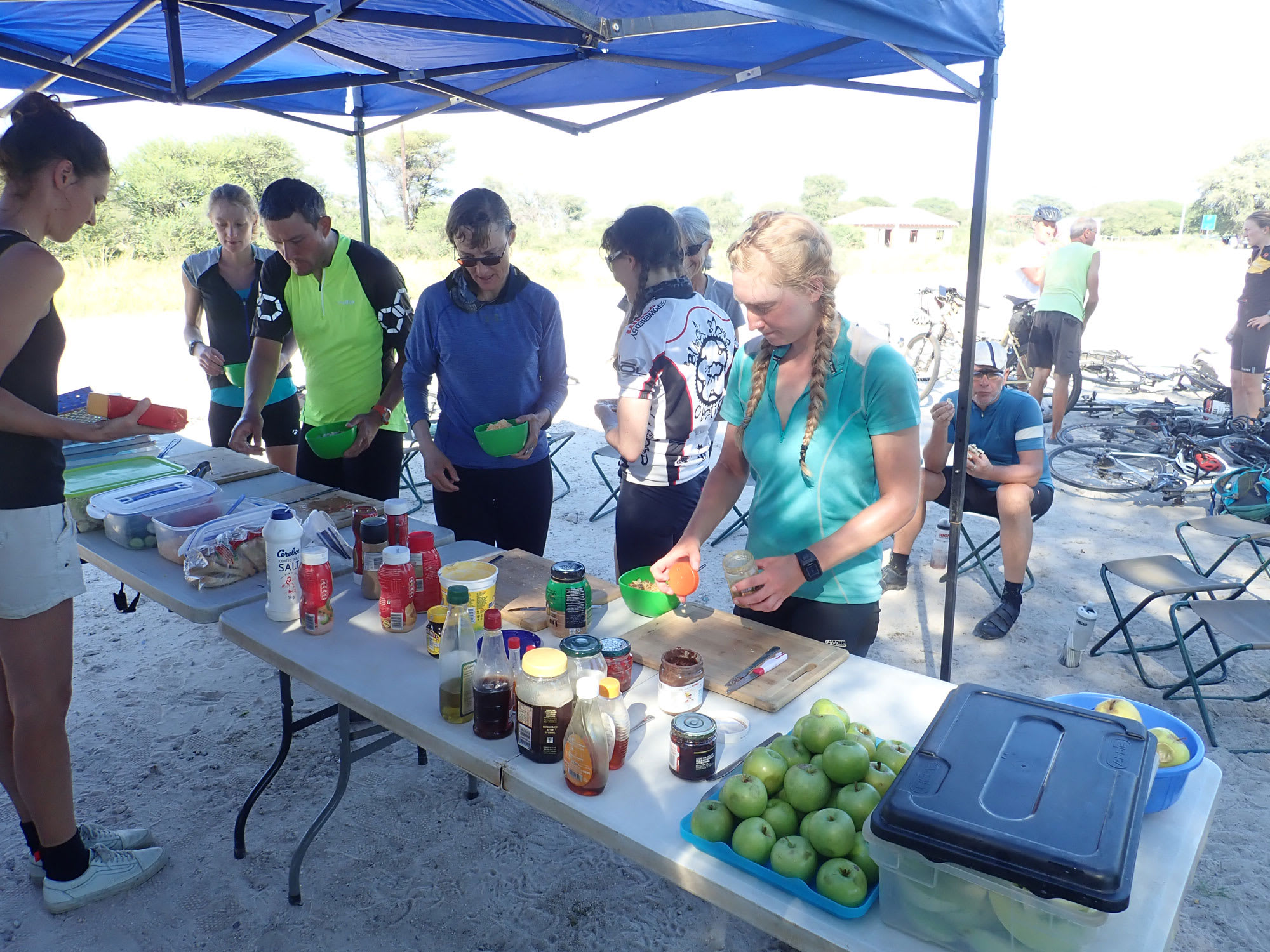
Lunch on the approach to Maun, Botswana
This was my first time in this role, and I was fortunate to start out through Egypt with the support of TDA veteran Miles MacDonald. A lot of work went into the relaxing midday break that the riders saw, from loading up and caring for all the fresh ingredients every evening, to carefully timing the transfer of perishables between the lunch truck’s coolers and the dinner truck’s freezer. Water management was another key element in my logistics, and at that point I didn’t realise just how easy I had it by just refilling directly from the dinner truck’s massive tanks.
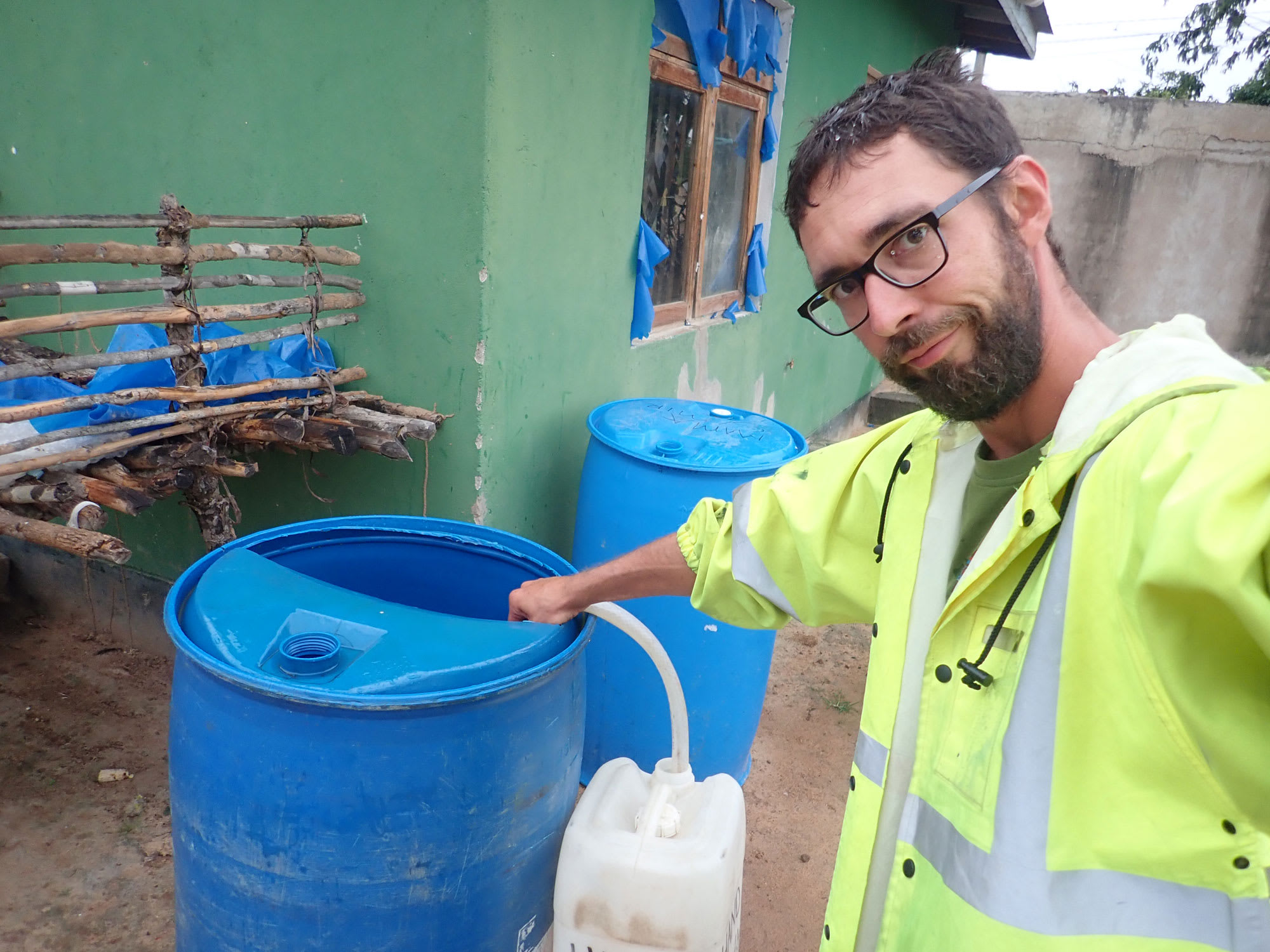
Siphoning water from the rainwater collection tanks at the Boroto Game Post, Tanzania
At some point partway through Sudan, this changed. Tallis, our tour leader, explained to me how bulk water sources weren’t as readily available going southward as in relatively-developed Egypt, so I would need to become self-sufficient in refilling the lunch truck’s tanks. Oh. Ok. Interesting. I had about a 250-litre total capacity split between a 200-litre bulk tank strapped into the truck for dishwashing and water bottle refills, a 25-litre jerrycan used for hand washing, and a second 25-litre jerrycan used for serving an electrolyte drink (both of which were consumed entirely at each lunch). Through careful water use for dishwashing, I could usually operate for about two days on a single water refill.
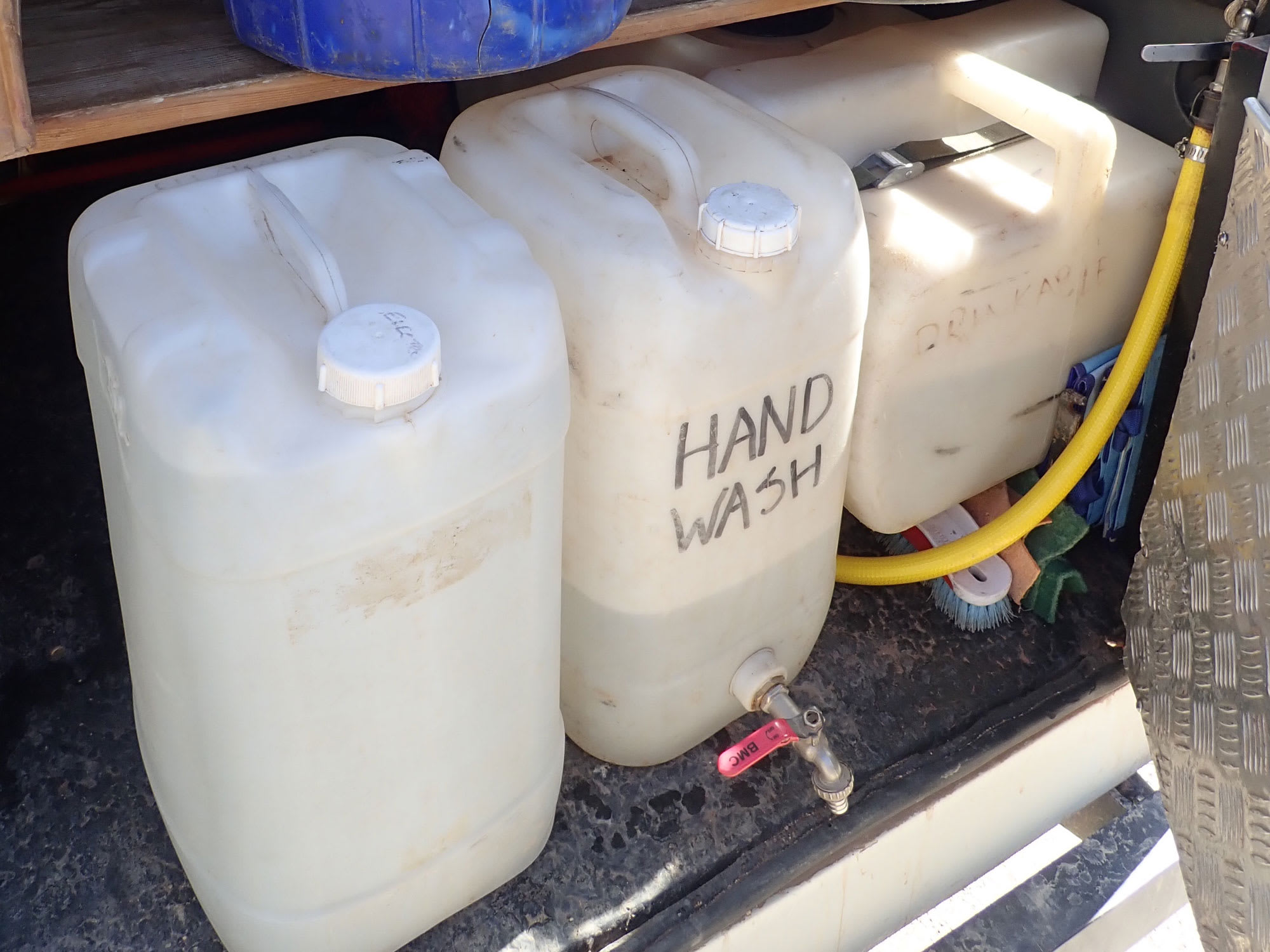
The lunch truck’s water supply infrastructure
At many of our camps, a tap was available for relatively easy bulk refills: fill the hand wash jerrycan at the tap, add purification chemicals, carry it over to the lunch truck, pour it into the bulk tank, and repeat a couple of times until I was back up to 250 litres. Sometimes the tap was even accessible with a hose, so I didn’t even need to carry the jerrycans. These were the easy days! My life got more interesting along the many stretches where our camps consisted of fields or schoolyards. I was constantly on the lookout for potential water sources!
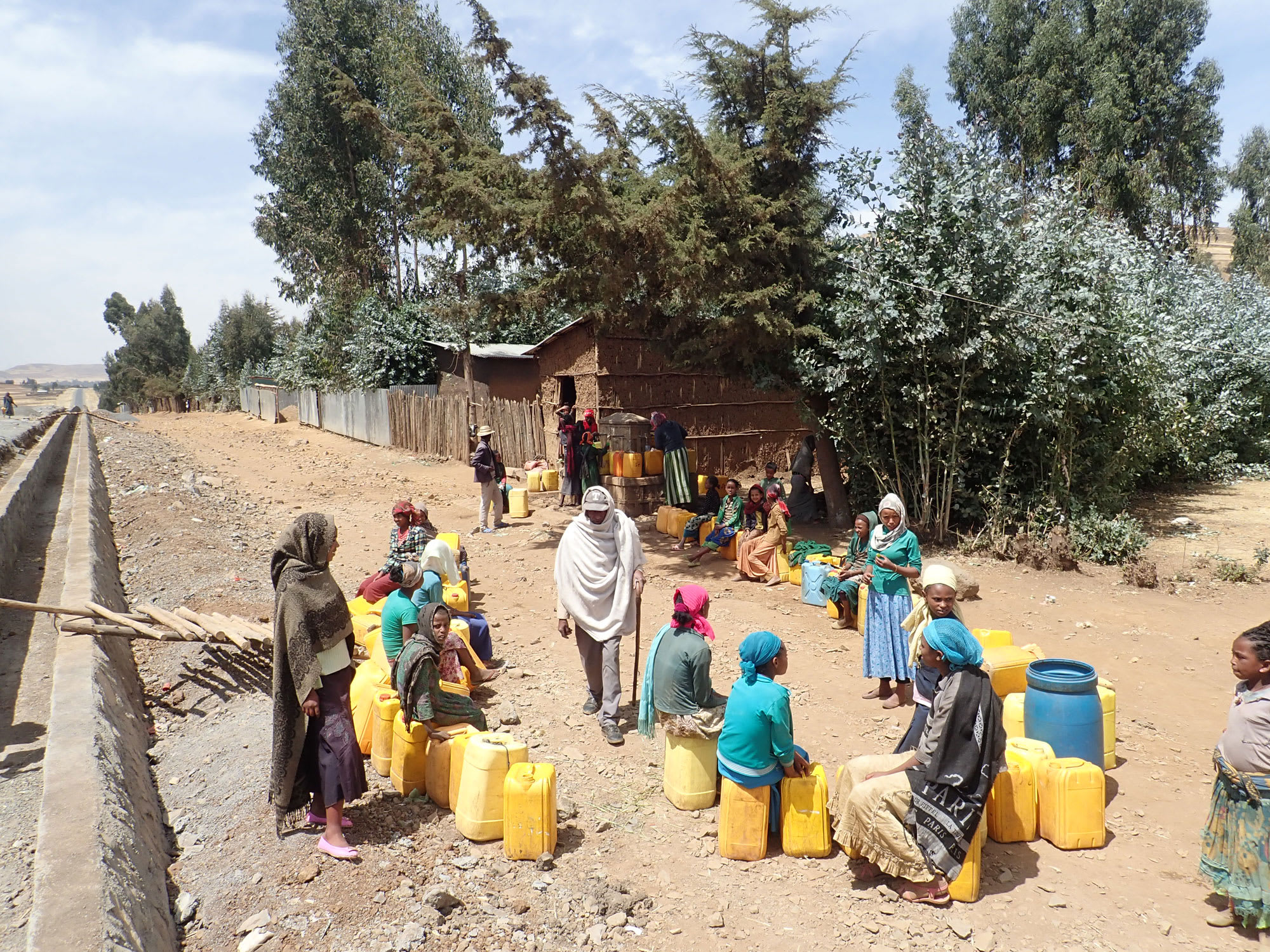
I was able to buy a couple of jerrycans-worth of water from someone who had already taken their turn at this pump just past the Blue Nile Gorge, Ethiopia
Ethiopia provided some of the most-interesting water points, often crowded with women waiting their turn patiently to fill their jerrycans. Where I spotted donkey carts loaded with jerrycans along the road, I could assume a water point was nearby. Refilling a jerrycan at these wells or water tanks is nearly always a paid transaction even for the locals, and for an inflated price I was generally able to buy a few jerrycans of water either from an enterprising local who had already filled theirs, or by jumping to the front of the line entirely.
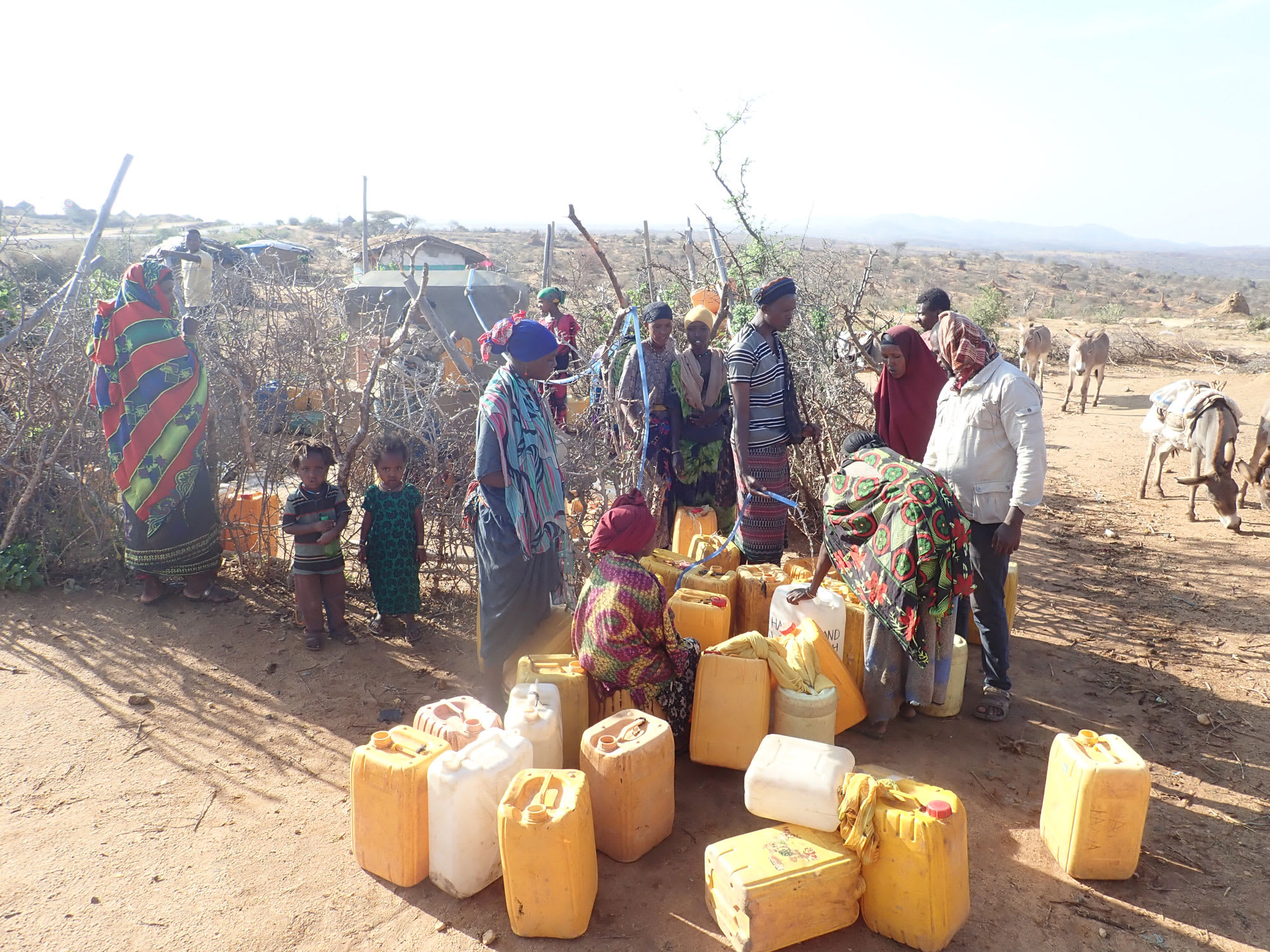
I was able to jump the line to fill a couple of jerrycans at this local tank on the approach to the Kenyan border in southern Ethiopia
Further south, I often refilled at village-based hand pumps. These were usually locked while not in use, so accessing them meant tracking down the local well steward with the key. Again, this was usually a paid transaction, but for me it was also a bit of a break because the locals sometimes did the heavy work of pumping, carrying the full jerrycan to the truck, and transferring the water to my bulk tank.
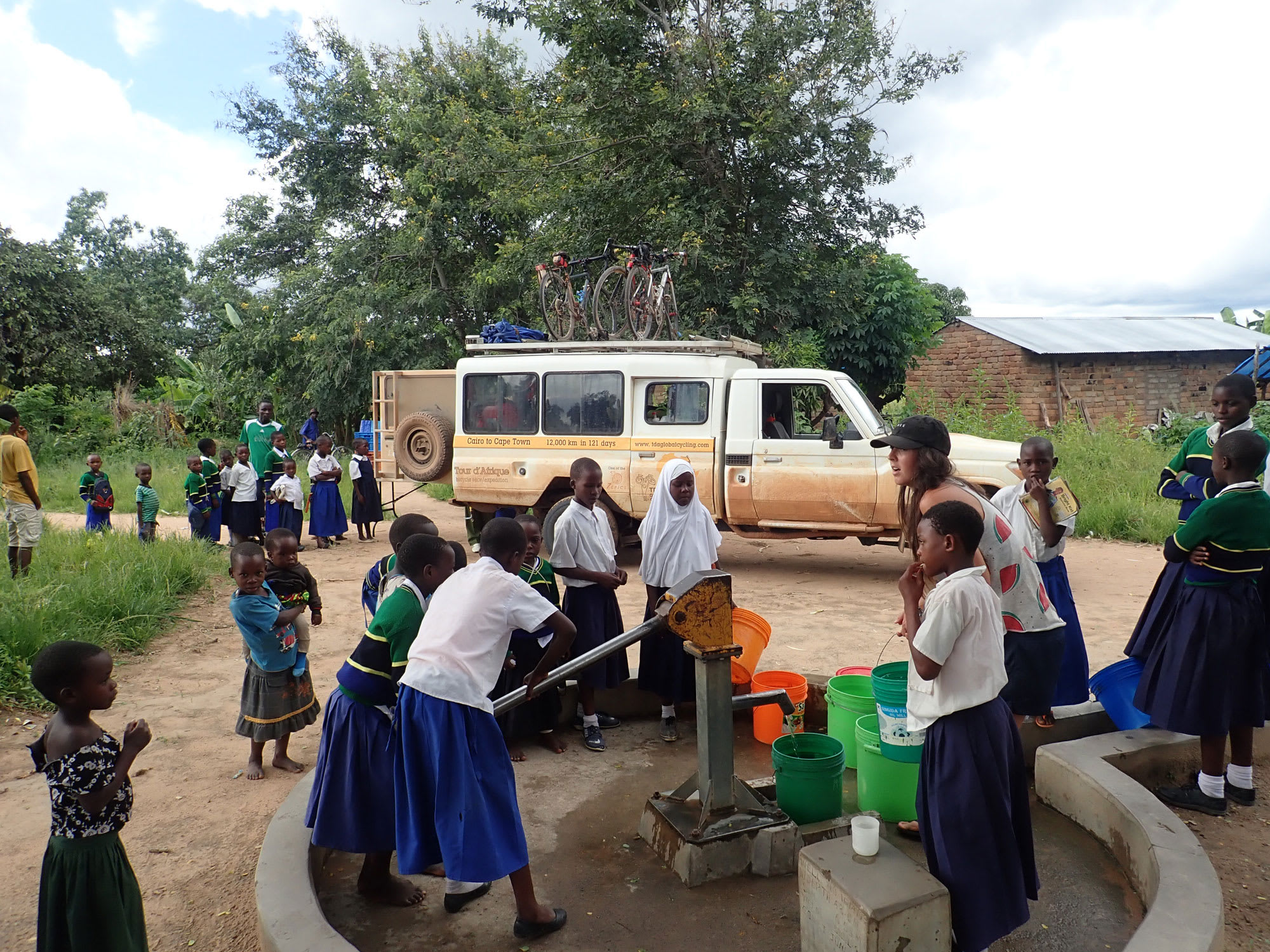
The schoolgirls wanted to take turns activating the pump in this small community on the road to Makongolosi, Tanzania
Where I hadn’t found water along the route for more than a day, an evening mission from camp was sometimes necessary. As a last resort, I sometimes just needed to rely on the dinner truck’s supply. Hauling full jerrycans of water around wasn’t my favourite nighttime activity, but it was often an essential one so lunch could run smoothly the next day.
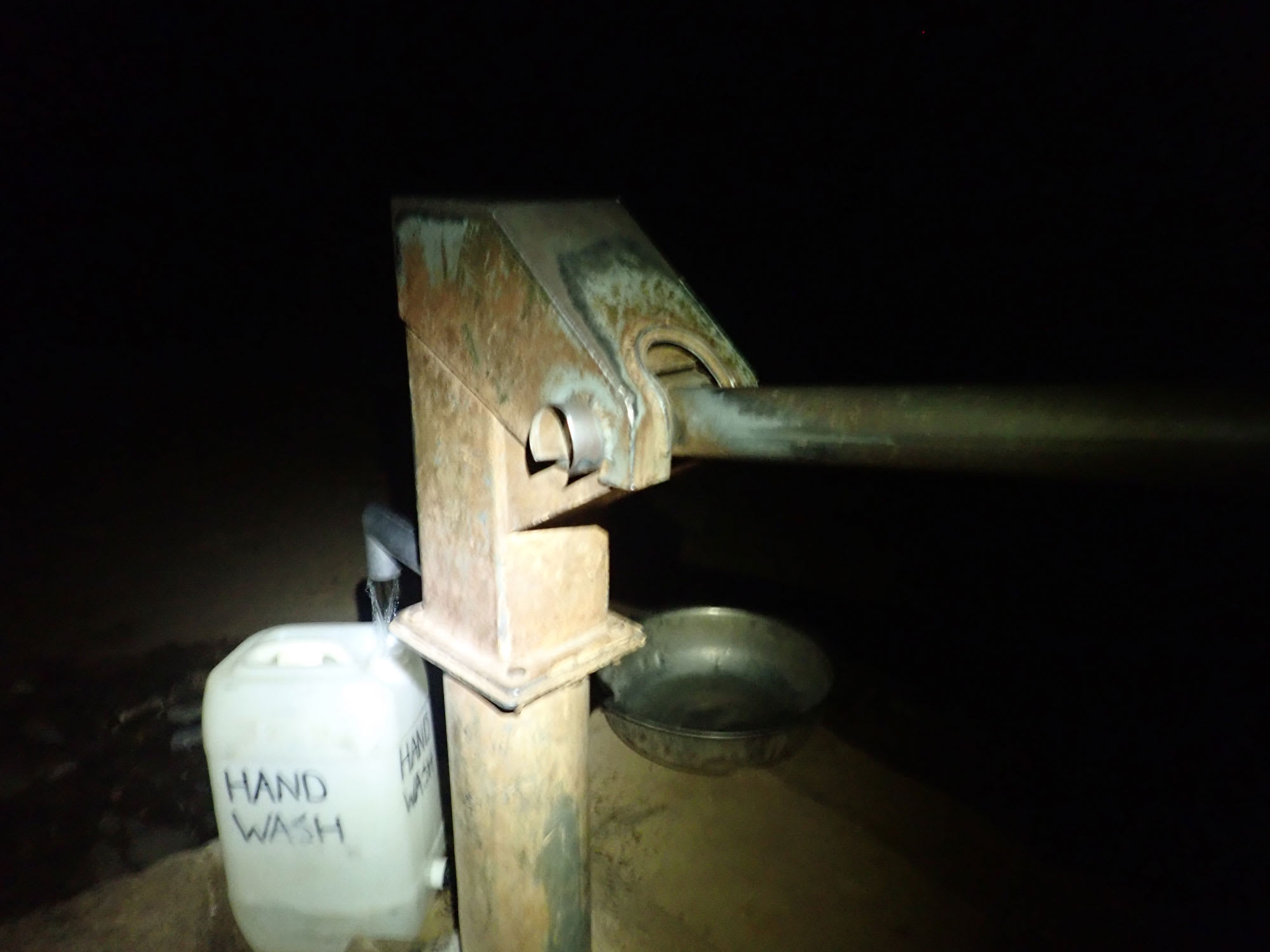
I was glad to find this hand pump down a path near our camp in Ethiopia’s Omo Valley
A lot of behind-the-scenes logistics goes into allowing cyclists to put their focus and energy on riding throughout the epic expedition-style tours that TDA Global Cycling is famous for. A reliable water supply can easily be taken for granted, whereas in some places it’s a formidable challenge. Once I got the hang of it though, I really came to appreciate this part of my job for the first-hand interactions it facilitated with the local communities. Wells, hand pumps, donkey carts, tankers, hoses, water stewards, jerrycans… they’re all just a sampling of elements that go into providing riders with a relaxing oasis for their daily lunch break!
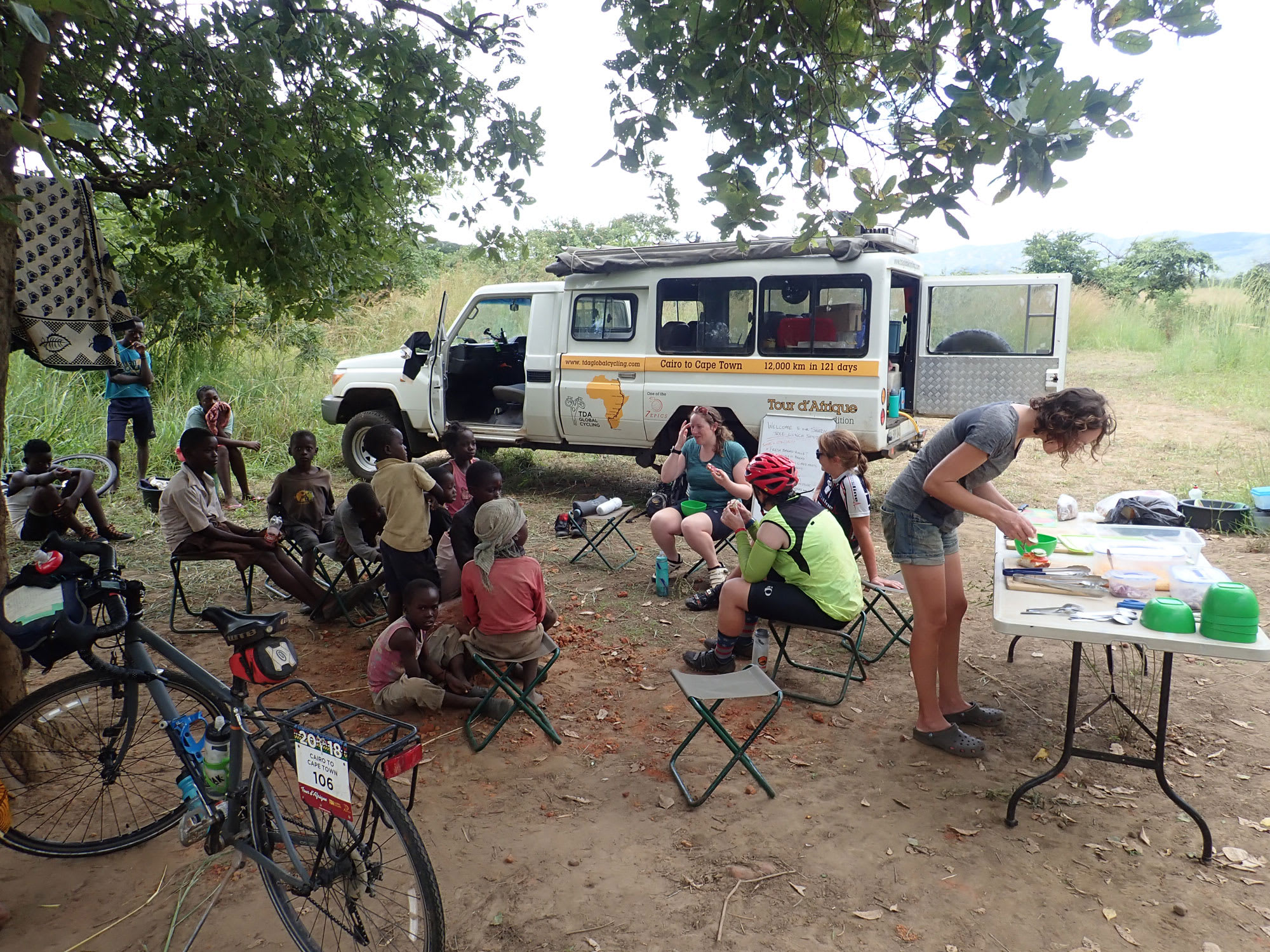
Lunch stop partway through Zambia
Thanks Ryan for sharing your story. We are still accepting submissions. Read submission details here.
 REGISTER NOW
REGISTER NOW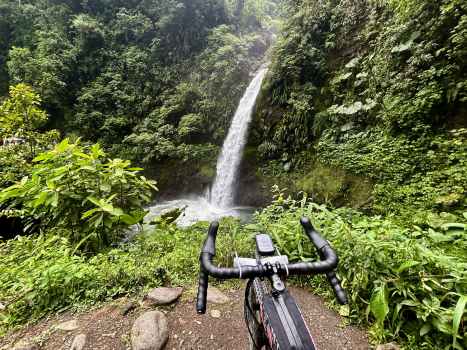

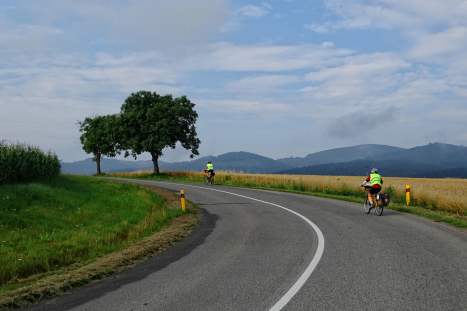


1 Comment for "Wells and Jerrycans On The Tour d’Afrique"
I was one of the riders on the 2018 Tour d’ Afrique. Ryan was a fantastic lunch truck guy. His lunch time fare was always terrific. Being one of the slower riders, I would often start from the lunch truck. Ryan was always positive and very accommodating. The other great memory I have of Ryan was the time he climbed up the trunk of a baobab tree. I have a great video of the time he entertained school children who mobbed our campsite with his one arm pull-ups and chin ups.